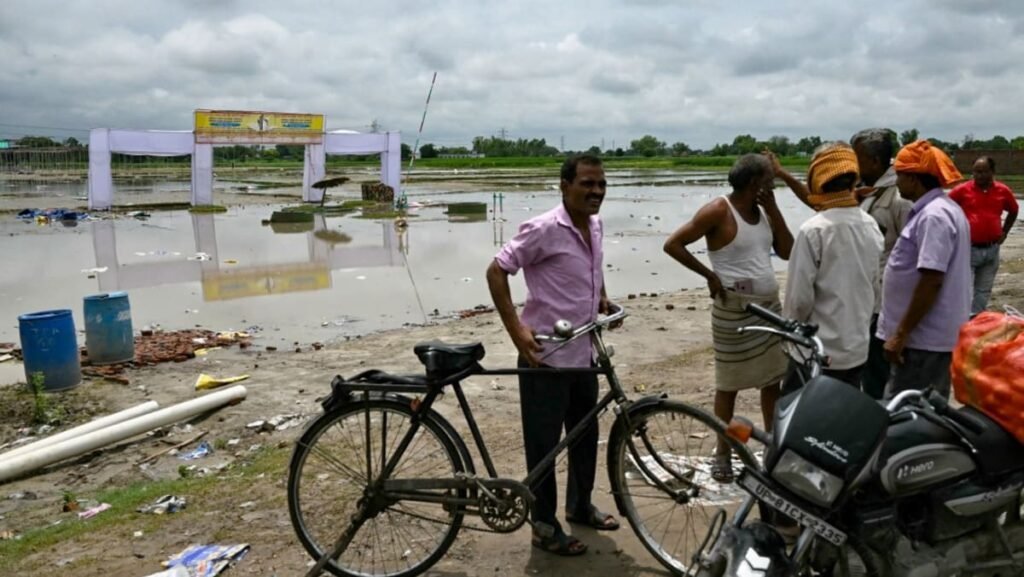An Indian preacher, Bhole Baba, who was delivering a sermon that ended in a deadly stampede in Hathras, India, resulting in the deaths of more than 120 people, spoke to the media for the first time since the tragedy. Baba expressed his distress over the incident but emphasized that fate cannot be challenged and death is inevitable for everyone. He stated that all individuals have to leave this earth at some point, and it is only a matter of when it will happen.
The stampede occurred during a prayer meeting attended by 250,000 devotees, far exceeding the authorized capacity of the venue. The majority of the deceased were women, and authorities have identified multiple organizers of the event as potential suspects for the tragedy. Baba’s lawyer had initially blamed “anti-social elements” in the crowd for inciting the chaos that led to the stampede. Although police reports have named several individuals sought for arrest in connection with the incident, Baba was not among them. However, 11 volunteers working for him have been arrested thus far.
The preacher addressed the media at one of his monasteries in Kasganj, approximately 60 kilometers from where the stampede occurred. This devastating event has once again highlighted the grim track record of religious gatherings in India, as similar incidents of poor crowd management and safety lapses have resulted in tragic outcomes in the past. For instance, in 2008, 224 pilgrims lost their lives, and over 400 were injured in a stampede at a hilltop temple in Jodhpur. Such incidents raise concerns about the need for better safety measures and crowd control protocols during large religious events.
Despite the tragic loss of lives in Hathras, Bhole Baba emphasized the inevitability of death and the belief that fate cannot be challenged. This perspective underscores the fatalistic worldview held by many individuals in India and around the world. The preacher’s acknowledgment of the distress caused by the stampede reflects the somber reality of such events and the deep impact they have on communities and families affected by the loss of loved ones. The aftermath of the tragedy has led to calls for accountability, as authorities seek to identify and hold responsible those involved in organizing the overcrowded prayer meeting.
As investigations into the stampede continue and arrests are made, the focus remains on improving safety measures and crowd management at religious gatherings in India. The need for stricter regulations and enforcement to prevent future tragedies like the one in Hathras is clear. The stark reminder of the risks associated with large-scale events underscores the importance of prioritizing public safety and preparedness to ensure the well-being of attendees. It is hoped that lessons will be learned from this tragic incident and that steps will be taken to prevent similar disasters in the future.

